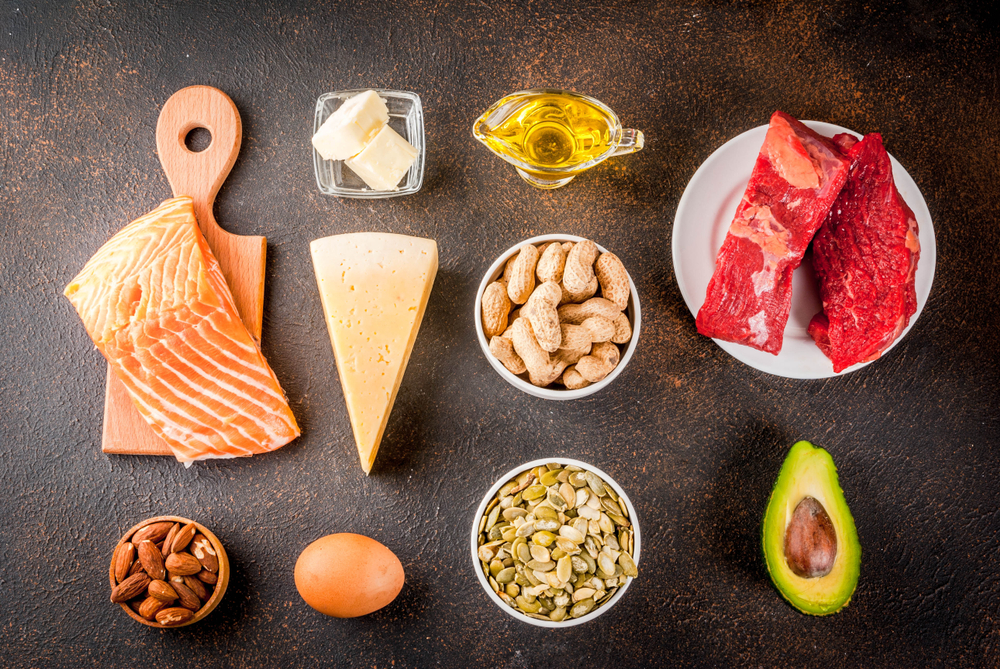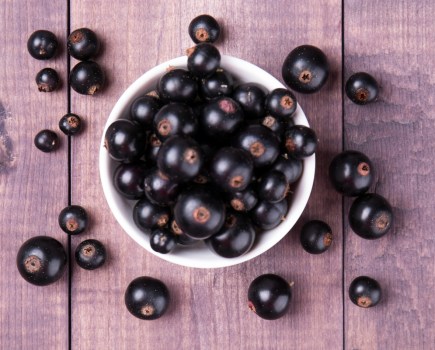With the promise of rapid weight loss, increased energy and a dramatic reduction in food cravings, it’s easy to see why the ketogenic diet has been at the forefront of eating trends for the last couple of years.
But recently questions have been asked about how safe it is. A study in the Lancet in August recorded that consuming large amounts of fat and very low amounts of carbohydrate – typical of the traditional keto diet – were associated with increased mortality.
However, we have found a new, healthier take on keto, that keeps the weight-loss and health benefits, without the potential health damage.
How does the keto diet work?
If you’re not familiar with the principles of keto, the diet usually involves eating around 70 per cent fats, 25 per cent protein and five per cent carbs. This eventually leads your body into a state called ‘ketosis’ – not to be confused with ketoacidosis, which is a dangerous condition that can occur in people with type 1 diabetes.
What is ketosis?
Being in a state of ketosis means you burn fat for fuel instead of glucose. Fat is a cleaner form of energy and results in fewer metabolic ‘waste products’ such as free radicals, which can damage your cells. Supporters argue that it promotes balanced blood sugar, which may be helpful for people with type 2 diabetes, and leads to weight loss, improved mental clarity and energy, better appetite control and fewer cravings.
Does the keto diet work?
So what’s not to like about keto? Well, many experts aren’t convinced. The Lancet study analysed the diets of 15,400 people in the US over 25 years. Scientists compared low-carb diets that were high in animal proteins and fats, with diets that contained lots of
plant-based proteins and fats. The results showed that eating more animal proteins and fats in place of carbs increased the risk of premature death by four years.
However, it found that if you replace some of your carb intake with plant-based proteins and fats instead of animal ones, you should reduce your risk of early death.
‘If one chooses to follow a low-carbohydrate diet, then exchanging carbohydrates for more plant-based fats and proteins might actually promote healthy ageing in the long-term,’ says Dr Sara Seidelman, a specialist in cardiovascular medicine at Brigham Hospital, Boston, US, who led the research.
This is backed up by another recent study of 130,000 people, published in JAMA Internal Medicine, which reported that people who ate more plant-based protein had a lower risk of early death than those who favoured more animal protein.
Is the keto diet safe?
‘The problem with the classic keto diet is that people are eating a lot of unhealthy, processed fats such as bacon, salami and ham,’ says Rick Hay, a nutritional therapist who lectures on sustainable weight management at London’s College of Naturopathic medicine (rickhay.co.uk). ‘These may help with weight loss but they aren’t healthy.
While you need a certain amount of saturated fat to maintain immunity, hormonal balance, and good liver and brain health, you do need to choose the right sources of that fat,’ he adds. ‘Go for plant-based fats such as nuts, avocado and coconut oil.

‘Plant foods rich in protein include quinoa, lentils, tempeh, beans, nuts and nut butters, coconut flour and plant-based protein powders such as hemp,’ says Rick. ‘These not only contain healthy nutrients but also much-needed fibre, which promotes good
gut bacteria. This in turn helps with weight loss and reduces bloating, as well as enhancing elimination.’
And it’s not that all animal-based foods are out, it’s about choosing quality over quantity. ‘When buying meat, always go for grass-fed organic meats and sustainably sourced oily fish, rather than hot dogs or pepperoni, which are highly processed,’ says Rick.
What to eat on the keto diet:
- PROTEIN: Eat good quality protein with every meal to help keep your blood sugar levels balanced. Protein also helps to speed up your metabolism so that you burn fat more efficiently.
- VEGETABLES: Eat vegetables that grow above the ground such as asparagus, lettuce, spinach, cabbage, cauliflower, green beans, peppers, tomatoes, aubergine, avocado, kale, courgette, olives and avocado. These are lower in carbs and have a lower glycaemic index so won’t cause your blood sugar to spike, which can happen with root vegetables as they are more starchy and rich in natural sugars.
- FRUIT: Only eat low-carb and low-glycaemic fruits such as raspberries and blackberries. Lemons and limes are OK too.
- HEALTHY FATS: You’ll find these in olive oil, coconut milk, nuts, seeds, oily fish, yogurt, avocados and vegetable oils, which are sources of slow-burn energy that help to stabilise blood sugar.
- DRINKS: Take mineral water, herbal teas such as green tea, fennel, ginger, dandelion, matcha and fresh mint. You can have one cup of tea or coffee per day.
- THERMOGENIC SPICES: These are fat-burning spices and include chilli, turmeric and cayenne pepper. Studies show these help to speed up your metabolism and increase
fat burning. - ORGANIC: When shopping, go for good-quality, organic meat, sustainable sources of fish and seafood, and organic vegetables whenever possible.
What to give up on the Keto diet
- Alcohol, sugar and processed foods: Steer clear of bread, cakes, pasta and rice.
- Avoid sugary fruits such as papaya, mango, banana, pineapple, and most apples (green Granny Smiths are better as they are less sweet).
- Bad fats: Avoid margarine, fried foods and processed meats. Also, ditch the trans fats – also called hydrogenated fats – which go through a process that makes vegetable oils semi-solid, and are often found in crisps, fast food, palm oil, corn oil and safflower oil.
- Below-ground vegetables: These include beetroot, carrots, sweet potatoes, potatoes, parsnips and onions. These are higher in carbs and have a higher glycaemic load than above-the-ground vegetables.
NOW READ: The amazing health benefits of raw food
How changing your mealtimes could have amazing weight loss results









